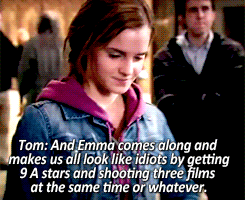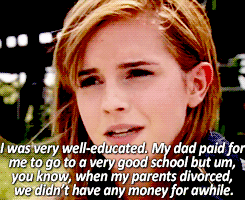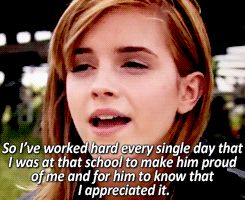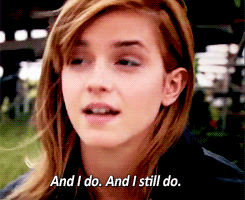Some TED Talks That Will Change Your Life.
Some TED talks that will change your life.
How to make stress your friend by Katie McGonial (14.5 minutes)
“Stress. It makes your heart pound, your breathing quicken and your forehead sweat. But while stress has been made into a public health enemy, new research suggests that stress may only be bad for you if you believe that to be the case. Psychologist Kelly McGonigal urges us to see stress as a positive, and introduces us to an unsung mechanism for stress reduction: reaching out to others.”
8 secrets of success by Richard St.John (3.5 minutes)
Why do people succeed? Is it because they’re smart? Or are they just lucky? Neither. Analyst Richard St. John condenses years of interviews into an unmissable 3-minute slideshow on the real secrets of success.
A simple way to break a bad habit by Judson Brewer (9.5 minutes)
Can we break bad habits by being more curious about them? Psychiatrist Judson Brewer studies the relationship between mindfulness and addiction — from smoking to overeating to all those other things we do even though we know they’re bad for us. Learn more about the mechanism of habit development and discover a simple but profound tactic that might help you beat your next urge to smoke, snack or check a text while driving.
Don’t regret regret by Kathryn Schulz (17 minutes)
We’re taught to try to live life without regret. But why? Using her own tattoo as an example, Kathryn Schulz makes a powerful and moving case for embracing our regrets.
How to make hard choices by Ruth Chang (14.5 minutes)
Here’s a talk that could literally change your life. Which career should I pursue? Should I break up — or get married?! Where should I live? Big decisions like these can be agonizingly difficult. But that’s because we think about them the wrong way, says philosopher Ruth Chang. She offers a powerful new framework for shaping who we truly are.
The danger of silence by Clint Smith (4 minutes)
We spend so much time listening to the things people are saying that we rarely pay attention to the things they don’t,“ says poet and teacher Clint Smith. A short, powerful piece from the heart, about finding the courage to speak up against ignorance and injustice.
How to speak so that people want to listen by Julian Treasure (10 minutes)
Have you ever felt like you’re talking, but nobody is listening? Here’s Julian Treasure to help. In this useful talk, the sound expert demonstrates the how-to’s of powerful speaking — from some handy vocal exercises to tips on how to speak with empathy. A talk that might help the world sound more beautiful.
Your body language shapes who you are by Amy Cuddy (21 minutes)
Body language affects how others see us, but it may also change how we see ourselves. Social psychologist Amy Cuddy shows how “power posing” — standing in a posture of confidence, even when we don’t feel confident — can affect testosterone and cortisol levels in the brain, and might even have an impact on our chances for success.
The happy secret to better work by Shawn Achor (12 minutes)
We believe we should work hard in order to be happy, but could we be thinking about things backwards? In this fast-moving and very funny talk, psychologist Shawn Achor argues that, actually, happiness inspires us to be more productive.
A call to men by Tony Porter (11 minutes) [TW: graphic desc. of rape]
At TEDWomen, Tony Porter makes a call to men everywhere: Don’t “act like a man.” Telling powerful stories from his own life, he shows how this mentality, drummed into so many men and boys, can lead men to disrespect, mistreat and abuse women and each other. His solution: Break free of the “man box.”
More Posts from Decadentheartflower and Others



Tracing paper sticky notes are such a clever idea. They’re perfect for text books as they don’t leave any marks behind.
So what? You had a bad semester. You gained some weight. So what? You’re single again. You lost your job. So what? What now? You live. You try again. That’s what.
never give up (via cwote)
50 Top Online Learning Sites

Rejoice fellow uni students looking for some studyspo, we urge you to take a few free lessons, as well as academic lessons provided from actual universities on several topics. Have a look at the 50 top learning sites you can find online to help you save some time.
Art and Music
Dave Conservatoire — Dave Conservatoire is an entirely free online music school offering a self-proclaimed “world-class music education for everyone,” and providing video lessons and practice tests.
Drawspace — If you want to learn to draw or improve your technique, Drawspace has free and paid self-study as well as interactive, instructor-led lessons.
Justin Guitar — The Justin Guitar site boasts over 800 free guitar lessons which cover transcribing, scales, arpeggios, ear training, chords, recording tech and guitar gear, and also offers a variety of premium paid mobile apps and content (books/ ebooks, DVDs, downloads).
Math, Data Science and Engineering
Codecademy — Codecademy offers data science and software programming (mostly Web-related) courses for various ages groups, with an in-browser coding console for some offerings.
Stanford Engineering Everywhere — SEE/ Stanford Engineering Everywhere houses engineering (software and otherwise) classes that are free to students and educators, with materials that include course syllabi, lecture videos, homework, exams and more.
Big Data University — Big Data University covers Big Data analysis and data science via free and paid courses developed by teachers and professionals.
Better Explained — BetterExplained offers a big-picture-first approach to learning mathematics — often with visual explanations — whether for high school algebra or college-level calculus, statistics and other related topics.
Design, Web Design/ Development
HOW Design University — How Design University (How U) offers free and paid online lessons on graphic and interactive design, and has opportunities for those who would like to teach.
HTML Dog — HTML Dog is specifically focused on Web development tutorials for HTML, CSS and JavaScript coding skills.
Skillcrush — Skillcrush offers professional web design and development courses aimed at one who is interested in the field, regardless of their background — with short, easy-to-consume modules and a 3-month Career Blueprints to help students focus on their career priorities.
Hack Design — Hack Design, with the help of several dozen designers around the world, has put together a lesson plan of 50 units (each with one or more articles and/or videos) on design for Web, mobile apps and more by curating multiple valuable sources (blogs, books, games, videos, and tutorials) — all free of charge.
General – Children and Adults
Scratch – Imagine, Program, Share — Scratch from MIT is a causal creative learning site for children, which has projects that range from the solar system to paper planes to music synths and more.
Udemy — Udemy hosts mostly paid video tutorials in a wide range of general topics including personal development, design, marketing, lifestyle, photography, software, health, music, language, and more.
E-learning for kids — E-learning for Kids offers elementary school courses for children ages 5-12 that cover curriculum topic including math, science, computer, environment, health, language, life skills and others.
Ed2go — Ed2go aims their “affordable” online learning courses at adults, and partners with over 2,100 colleges and universities to offer this virtual but instructor-led training in multiple categories — with options for instructors who would like to participate.
GCF Learn Free — GCFLearnFree.org is a project of Goodwill Community Foundation and Goodwill Industries, targeting anyone look for modern skills, offering over 1,000 lessons and 125 tutorials available online at anytime, covering technology, computer software, reading, math, work and career and more.
Stack Exchange — StackExchange is one of several dozen Q+A sites covering multiple topics, including Stack Overflow, which is related to computer technology. Ask a targeted question, get answers from professional and enthusiast peers to improve what you already know about a topic.
HippoCampus — HippoCampus combines free video collections on 13 middle school through college subjects from NROC Project, STEMbite, Khan Academy, NM State Learning Games Lab and more, with free accounts for teachers.
Howcast — Howcast hosts casual video tutorials covering general topics on lifestyle, crafts, cooking, entertainment and more.
Memrise — Lessons on the Memrise (sounds like “memorize”) site include languages and other topics, and are presented on the principle that knowledge can be learned with gamification techniques, which reinforce concepts.
SchoolTube — SchoolTube is a video sharing platform for K-12 students and their educators, with registered users representing over 50,000 schools and a site offering of over half a million videos.
Instructables — Instructables is a hybrid learning site, offering free online text and video how-to instructions for mostly physical DIY (do-it-yourself) projects that cover various hands-on crafts, technology, recipes, game play accessories and more. (Costs lie in project materials only.)
creativeLIVE — CreativeLive has an interesting approach to workshops on creative and lifestyle topics (photography, art, music, design, people skills, entreprenurship, etc.), with live access typically offered free and on-demand access requiring purchase.
Do It Yourself — Do It Yourself (DIY) focuses on how-tos primarily for home improvement, with the occasional tips on lifestyle and crafts topics.
Adafruit Learning System — If you’re hooked by the Maker movement and want to learn how to make Arduino-based electronic gadgets, check out the free tutorials at Adafruit Learn site — and buy the necessary electronics kits and supplies from the main site.
Grovo — If you need to learn how to efficiently use a variety of Web applications for work, Grovo has paid (subscription, with free intros) video tutorials on best practices for hundreds of Web sites.
General College and University
edX — The edX site offers free subject matter from top universities, colleges and schools from around the world, including MIT and Harvard, and many courses are “verified,” offering a certificate of completion for a nominal minimum fee.
Cousera — Coursera is a learning site offering courses (free for audit) from over 100 partners — top universities from over 20 countries, as well as non-university partners — with verified certificates as a paid option, plus specializations, which group related courses together in a recommended sequence.
MIT Open Courseware — MIT OpenCourseWare is the project that started the OCW / Open Education Consortium [http://www.oeconsortium.org], launching in 2002 with the full content of 50 real MIT courses available online, and later including most of the MIT course curriculum — all for free — with hundreds of higher ed institutions joining in with their own OCW course materials later.
Open Yale Courses — Open Yale Courses (OYC) are free, open access, non-credit introductory courses recorded in Yale College’s classroom and available online in a number of digital formats.
Open Learning Initiative — Carnegie Mellon University’s (CMU’s) Open Learning Initiative (OLI) is course content (many open and free) intended for both students who want to learn and teachers/ institutions requiring teaching materials.
Khan Academy — Khan Academy is one of the early online learning sites, offering free learning resources for all ages on many subjects, and free tools for teachers and parents to monitor progress and coach students.
MIT Video — MITVideo offers over 12,000 talks/ lecture videos in over 100 channels that include math, architecture and planning, arts, chemistry, biological engineering, robotics, humanities and social sciences, physics and more.
Stanford Online — Stanford Online is a collection of free courses billed as “for anyone, anywhere, anytime” and which includes a wide array of topics that include human rights, language, writing, economics, statistics, physics, engineering, software, chemistry, and more.
Harvard Extension School: Open Learning Initiative — Harvard’s OLI (Open Learning Initiative) offers a selection of free video courses (taken from the edX selection) for the general public that covers a range of typical college topics, includings, Arts, History, Math, Statistics, Computer Science, and more.
Canvas Network — Canvas Network offers mostly free online courses source from numerous colleges and universities, with instructor-led video and text content and certificate options for select programs.
Quantum Physics Made Relatively Simple — Quantum Physics Made Relatively Simple” is, as the name implies, a set of just three lectures (plus intro) very specifically about Quantum Physics, form three presentations given by theoretical physicist Hans Bethe.
Open UW — Open UW is the umbrella initiative of several free online learning projects from the University of Washington, offered by their UW Online division, and including Coursera, edX and other channels.
UC San Diego Podcast Lectures — Podcast USCD, from UC San Diego, is a collection of audio and/or video podcasts of multi-subject university course lectures — some freely available, other only accessible by registered students.
University of the People — University of the People offers tuition-free online courses, with relatively small fees required only for certified degree programs (exam and processing fees).
NovoEd — NovoEd claims a range of mostly free “courses from thought leaders and distinguished professors from top universities,” and makes it possible for today’s participants to be tomorrow’s mentors in future courses.
IT and Software Development
Udacity — Udacity offers courses with paid certification and nanodegrees — with emphasis on skills desired by tech companies in Silicon Valley — mostly based on a monthly subscription, with access to course materials (print, videos) available for free.
Apple Developer Site — Apple Developer Center may be very specific in topics for lessons, but it’s a free source of documentation and tutorials for software developers who want to develop apps for iOS Mobile, Mac OS X desktop, and Safari Web apps.
Google Code — As with Apple Developer Center, Google Code is topic-narrow but a good source of documentation and tutorials for Android app development.
Code.org — Code.org is the home of the “Hour of Code” campaign, which is aimed at teachers and educators as well as students of all ages (4-104) who want to teach or learn, respectively, computer programming and do not know where to start.
Mozilla Developer Network — MDN (Mozilla Developer Network) offers learning resources — including links to offsite guides — and tutorials for Web development in HTML, CSS and JavaScript — whether you’re a beginner or an expert, and even if you’re not using Mozilla’s Firefox Web browser.
Learnable — Learnable by Sitepoint offers paid subscription access to an ebook library of content for computers and tablets, and nearly 5,000 videos lessons (and associated code samples) covering software-related topics – with quizzes and certification available.
Pluralsight — Pluralsight (previously PeepCode) offers paid tech and creative training content (over 3,700 courses and 130K video clips) for individuals, businesses and institutions that covers IT admin, programming, Web development, data visualization — as well as game design, 3D animation, and video editing through a partnership with Digital-Tutors.com, and additional software coding lessons through Codeschool.com.
CodeHS — CodeSchool offers software coding lessons (by subscription) for individuals who want to learn at home, or for students learning in a high school teacher-led class.
Aquent Gymnasium — Gymnasium offers a small but thorough set of free Web-related lesson plans for coding, design and user experience, but filters access by assessing the current knowledge of an enrollee and allows those with scores of at least 70% to continue.







day 14/100 of productivity🍂
first day of half term; on my death bed, im so sick, sigh. the amount of revision i have to do is too much. one second as i jump out of my window to escape my workload :)
listening to:
Armor - Landon Austin



080916 - It’s Week 5 now and I can’t believe that I’m already halfway into the first semester of my sophomore year. Taking a science module this semester for contrast in my timetable and it’s really dense!! But I’m glad I decided to start watching TED talks again because it’s so inspiring to see things you’re learning in class get talked about by professionals. It’s also great to be learning things outside of my curriculum!!! I’m so motivated but I’m worried that I’ll burn out as well so here’s to more doodles and studyblr shenanigans to keep me going :-)

No better way to spend rainy days
How to write a bomb ass personal statement
I’ve had a few asks about how to write - as one of you put it - a bomb ass personal statement. I’m a bit reluctant to write this, seeing as I haven’t actually got an interview/offer yet! But I guess it might be helpful to those of you applying around now :)
HOW TO START
Bullet point what you want to include - I suggest listing out what you want to include. It’s a good idea to do this at the beginning, to make sure you don’t leave anything out; and it can help form the basic structure of your statement.
Do not start at the start - this is one of the most important things I learnt when writing mine. It is so hard to write that first sentence - so just leave it until the end, and begin writing with the actual content, something you’re more comfortable writing about.
When you do get down to writing that first sentence - do not start with a cheesy quote or the typical “I have always bee passionate about…” as these are things that can immediately put off an admissions tutor. Try and be original, or just simple: “I want to study X because…”
THE CONTENT
Just keep writing - don’t worry about the 4,000 character and 47 line limits. Literally just write, and keep going, even if you think what you’re writing is bad - just get all your ideas out there, and put down everything you would want to include. It’s so much easier to take things out rather than adding things in. My personal statement was around 8,000 characters at one point!`
Get the balance right - different unis want different things from personal statements, so check their websites to make sure you’re getting in what they want. You need to get the balance of intellectual curiosity/passion for the subject with your personal qualities and extra-curriculars.
Back up everything with evidence - don’t just say you are great at working in a team, give examples that demonstrate that you have worked well in successful teams in the past.What to include?
WHAT TO INCLUDE
Why you want to study that particular course
Why you are the right person to study the course
Extra things you have done to show commitment or interest about the course - volunteering, subscriptions to journals, further reading etc.
Any relevant work experience
Any relevant awards you’ve won (e.g. maths challenge or physics olympiad) or responsibilities within the school (e.g. prefect or house captain)
Demonstrate desirable skills for your course - problem solving, teamwork, leadership etc.
WHAT NOT TO INCLUDE
Cliches - like “Ever since I was born I have wanted to study…”
Quotes - this is a personal statement, so don’t start quoting other people! Plus way too many people do this to make it original.
Jokes - it may be that the person reading your statement has a very different sense of humour than you do.
Really long sentences - you want your personal statement to be as easy as possible to read, and long confusing sentences won’t help that.
Repetition - it’s such a short document, you don’t have space for this. Plus it gets boring!
Names of unis - the unis you apply to have no idea where else you have applied, so don’t name any of them in your statement.
THE ENDING
Do not end on a cheesy quote or joke. Just sum up why you’d be a great candidate and reinforce what you have told them throughout the main body of the statement - that you’re fabulous!
Once you have finished a draft you can start trying to cut down on the word count. Maybe ask a teacher to look at your spelling/grammar, and you can always get your friends’ opinions too, on what should come out, and what should be kept in. Make sure you don’t let other people have too much influence - it has to be a personal statement!
-
 sultryjefa reblogged this · 2 weeks ago
sultryjefa reblogged this · 2 weeks ago -
 rush7474 liked this · 2 months ago
rush7474 liked this · 2 months ago -
 kuihmilk liked this · 3 months ago
kuihmilk liked this · 3 months ago -
 kokiri-heart liked this · 3 months ago
kokiri-heart liked this · 3 months ago -
 naynameanon liked this · 3 months ago
naynameanon liked this · 3 months ago -
 eimari61 liked this · 3 months ago
eimari61 liked this · 3 months ago -
 justsomesparkintheuniverse reblogged this · 4 months ago
justsomesparkintheuniverse reblogged this · 4 months ago -
 justsomesparkintheuniverse liked this · 4 months ago
justsomesparkintheuniverse liked this · 4 months ago -
 peacock2243 liked this · 5 months ago
peacock2243 liked this · 5 months ago -
 i-darkling liked this · 5 months ago
i-darkling liked this · 5 months ago -
 annanihhk liked this · 5 months ago
annanihhk liked this · 5 months ago -
 annita89slyzpqlkh liked this · 5 months ago
annita89slyzpqlkh liked this · 5 months ago -
 beeskneesbb reblogged this · 5 months ago
beeskneesbb reblogged this · 5 months ago -
 sdolly-baby-new reblogged this · 6 months ago
sdolly-baby-new reblogged this · 6 months ago -
 sdolly-baby-new liked this · 6 months ago
sdolly-baby-new liked this · 6 months ago -
 adorebreebree liked this · 6 months ago
adorebreebree liked this · 6 months ago -
 incarrnate liked this · 6 months ago
incarrnate liked this · 6 months ago -
 renee561 reblogged this · 6 months ago
renee561 reblogged this · 6 months ago -
 darksisterk liked this · 6 months ago
darksisterk liked this · 6 months ago -
 theprettyone1 reblogged this · 6 months ago
theprettyone1 reblogged this · 6 months ago -
 shycloudcalzonekid liked this · 6 months ago
shycloudcalzonekid liked this · 6 months ago -
 farawayforest liked this · 6 months ago
farawayforest liked this · 6 months ago -
 tectonika liked this · 6 months ago
tectonika liked this · 6 months ago -
 iknew-rightfromthebeginning liked this · 7 months ago
iknew-rightfromthebeginning liked this · 7 months ago -
 fehinti liked this · 7 months ago
fehinti liked this · 7 months ago -
 brookbrizzleblog reblogged this · 7 months ago
brookbrizzleblog reblogged this · 7 months ago -
 7dcsandacinnamonroll liked this · 7 months ago
7dcsandacinnamonroll liked this · 7 months ago -
 kimiatha reblogged this · 7 months ago
kimiatha reblogged this · 7 months ago -
 katiesgranddaughter liked this · 7 months ago
katiesgranddaughter liked this · 7 months ago -
 shoppingbagteeks liked this · 7 months ago
shoppingbagteeks liked this · 7 months ago -
 4merakiii reblogged this · 7 months ago
4merakiii reblogged this · 7 months ago -
 4merakiii liked this · 7 months ago
4merakiii liked this · 7 months ago -
 kelseykierra liked this · 7 months ago
kelseykierra liked this · 7 months ago -
 belenosblack liked this · 7 months ago
belenosblack liked this · 7 months ago -
 sparklinggodess liked this · 7 months ago
sparklinggodess liked this · 7 months ago -
 indulgedheritagelove liked this · 7 months ago
indulgedheritagelove liked this · 7 months ago -
 medina4mcali liked this · 7 months ago
medina4mcali liked this · 7 months ago -
 shesluxuriousx reblogged this · 7 months ago
shesluxuriousx reblogged this · 7 months ago -
 emotionalillusions liked this · 7 months ago
emotionalillusions liked this · 7 months ago -
 karlabarretov liked this · 7 months ago
karlabarretov liked this · 7 months ago -
 pharaohtsiann reblogged this · 7 months ago
pharaohtsiann reblogged this · 7 months ago -
 pharaohtsiann liked this · 7 months ago
pharaohtsiann liked this · 7 months ago -
 boybetterun liked this · 7 months ago
boybetterun liked this · 7 months ago -
 colorfulsharkpeachshepherd liked this · 7 months ago
colorfulsharkpeachshepherd liked this · 7 months ago

